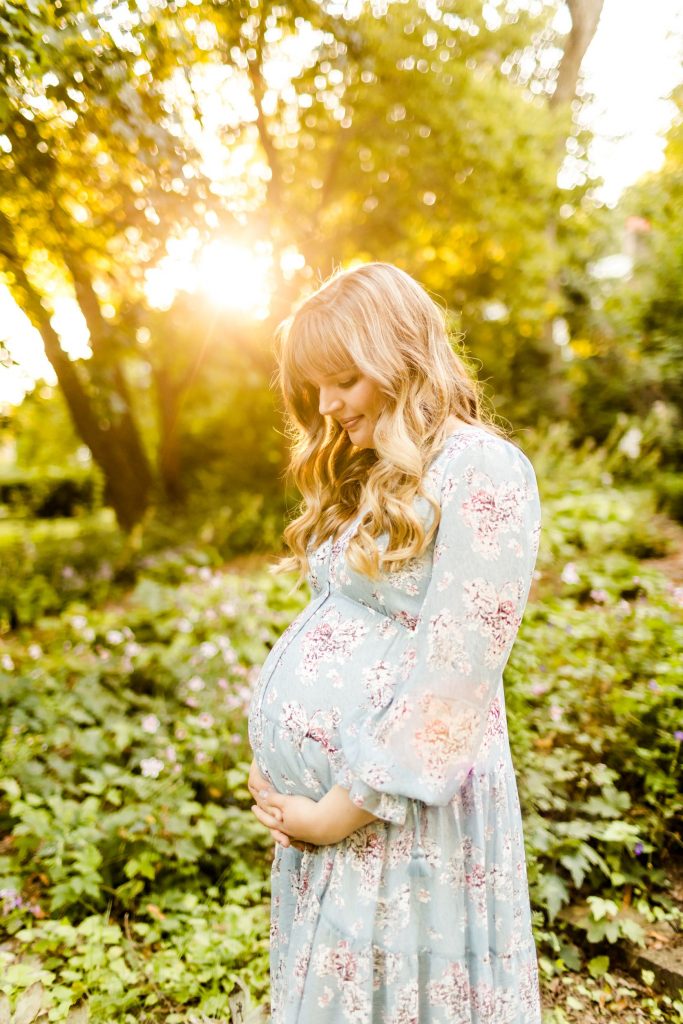
There are many terms that are used in the journey to motherhood. First, when you are pregnant, you are a “mom-to-be”. This seems to imply that only after your baby is born do you really become a mom.
I walked into my 20-week ultrasound believing I was a mom-to-be, but that not-even-a-mom-yet version of myself suddenly began having to make actual life or death decisions for my child before she even arrived.
First, the option was presented to terminate the pregnancy. A doctor sat down and explained that her diagnosis was incompatible with life, and explained the steps to end a pregnancy at 24-weeks gestation. Once Baylor and I told my doctor that we would be continuing the pregnancy no matter the prognosis, the advocating didn’t end there. I had to refuse a lot of other suggestions by my medical team as well.
Next, it was suggested that I stop monitoring my pregnancy altogether. This suggestion was made because if Eden was to pass in utero, she would not have to be in pain. But no one was able to tell me what exactly would be causing her pain, just that she would have it. I wanted to know all there was to know about Eden. At the time, she had only a mild brain anomaly and a heart defect that we were told would not be a problem until she turned 6 months old (not that anyone thought she would live that long). I was reassured repeatedly that she was not suffering in utero, which was a concern of mine. I wanted to increase my monitoring during pregnancy, not decrease it.
Next, it was suggested that I don’t monitor her heart activity during labor. Since babies with Trisomy 13 often struggle to tolerate birth, my medical team thought it would be cruel to me l if I had to listen to her die during my labor. But I wanted Eden to be born alive, via caesarean section if needed. That was a separate battle altogether, because it was not seen as worth the risk to perform a surgery on me for a baby who would not survive (again-based on a diagnosis alone, not her).
Next, it was suggested that once she was born alive, only comfort care be offered. I want to make it abundantly clear that I have nothing against parents choosing comfort care in the context of a life-limiting diagnosis. It is a very valid and loving choice in many situations. Also, comfort care is not black and white. Sometimes it includes medical interventions such as oxygen and feeding through a tube, because struggling to breathe or being hungry could theoretically cause a child discomfort. I knew that Eden’s life was statistically extremely likely to be short. But I also wanted to have all the information about her before blindly making decisions about her care.
I had to seek out extra help from a national nonprofit to help me make a birth plan for Eden that accurately represented my wishes for her. This included my wishes for her both in life and death.
As a “mom-to-be”, I wasn’t sifting through reviews for the best baby products or designing a Pinterest-worthy nursery. I wasn’t considering my birth preferences or hiring a doula. As a mom-to-be, I selected a funeral home. I chose cremation over burial. I chose whether or not I would want chest compressions done on my baby if she were born without a heartbeat. I chose which interventions I wanted to be available for her before even meeting her or knowing what she would need.
When I was making these decisions, was I a mom?
I would argue that I became a mother the second I saw that positive pregnancy test. Because from that moment on, I started to put my baby first. As I cried and grieved after getting her diagnosis, I learned at that moment how intensely it is possible to love someone you’ve never even met.
I wasn’t the priority anymore, it was always about her. Her life. Her comfort. Her journey.
This realization that women become moms far sooner than we give them credit for has changed how I talk to my pregnant friends and family members. I no longer tell pregnant women they are going to be good moms. I tell them they already are a good mom. The decisions they make for their child matter now, not just when that baby is born. It is my hope and prayer that no pregnant mom ever has to make the kinds of decisions I made, but regardless, that time of being pregnant is where parenting begins.
Well said. We are moms before our babies are born. Although we don’t physically care for our children after they pass, we are no less a mother. My daughter, Faith, was born with Trisomy 13, and we had to make many of the same decisions. Thank you so much for sharing.